
I See a Darkness is the sixth album by American musician Will Oldham, released on Palace Records on January 19, 1999, as the first album under the name Bonnie "Prince" Billy. The album features appearances from Bob Arellano, Colin Gagon, Paul Oldham, David Pajo, and Peter Townsend.

Who Will Cut Our Hair When We're Gone? is the second and final studio album by Canadian indie rock band the Unicorns. It features several re-arranged versions of songs from their earlier self-released album Unicorns Are People Too. The album was first issued on CD and on vinyl in North America by Alien8 Recordings on October 21, 2003, and on CD in Europe by Rough Trade Records in 2004. It has since been repressed in limited quantities on pink and brown vinyl by Alien8 and was re-released on August 26, 2014 on the band's own label, Caterpillar Records.

Patrick Wolf is an English singer-songwriter from South London. Wolf uses a wide variety of instruments in his music, most commonly the ukulele, piano, and viola. He is known for combining electronic sampling with classical instruments. Wolf's styles range from electronic pop to Baroque chamber music.
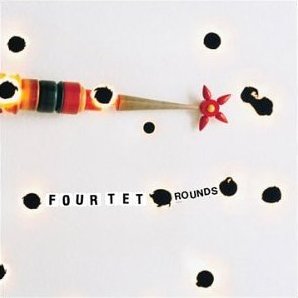
Rounds is the third solo album by British electronic musician Kieran Hebden, released under his alias Four Tet on 5 May 2003 by Domino Recording Company. Wanting to make a more personal record, Hebden recorded and produced the album in his North London flat over ten months using a desktop computer and a home hi-fi system. Its ten tracks feature elements of hip hop, jazz and folk; apart from a guitar part recorded for "Slow Jam", the music is composed from between 200 and 300 samples, many processed beyond recognition.
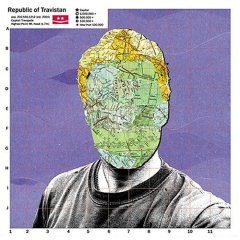
Travistan is Travis Morrison's solo debut album, released in 2004 by Barsuk Records. The record is named after the van that Morrison rode in during his former band The Dismemberment Plan's last tour.

The DEFinition is the tenth studio album by American rapper LL Cool J, released on August 31, 2004 by Def Jam Recordings. Largely produced by Timbaland, with several tracks produced by N.O. Joe, Teddy Riley, and 7 Aurelius, the album peaked at number 4 on the US Billboard 200 and spawned two singles: "Headsprung" and "Hush". It was certified Gold by the RIAA for selling over 500,000 copies.

Electric Circus is the fifth studio album by American rapper Common, released on December 10, 2002, on the now-defunct MCA Records. The album was highly anticipated and praised by many critics for its ambitious vision. However, it was not as commercially successful as his previous album, Like Water for Chocolate, selling under 300,000 copies. An eclectic album, Electric Circus features fusions of several genres such as hip hop, pop, rock, electronic, and neo soul. "I wasn't feeling hip hop," the rapper remarked. "So my motivation for that album were other genres of music, like Pink Floyd and Jimi Hendrix. It wasn't hip hop." This was Common's second and last album for MCA, as well as the final album released under the label, which would soon be merged into Geffen Records a year later.

Codename: Dustsucker, stylised as ///CODENAME: dustsucker, is the second studio album by English post-rock band Bark Psychosis. It was released on 28 July 2004 on Fire Records. The album was recorded at DustSuckerSound, a private studio run by Bark Psychosis member Graham Sutton in east London, between 1999 and 2004. It notably features the contributions of Lee Harris, the drummer and percussionist of early post-rock purveyors Talk Talk.
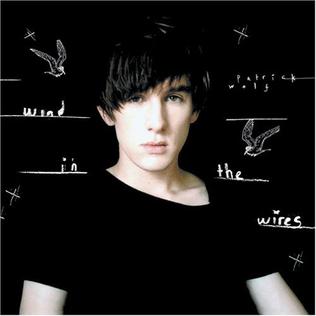
Wind in the Wires is the second studio album by English singer-songwriter Patrick Wolf.

The Magic Position is the third studio album by English singer-songwriter Patrick Wolf. It was released on 26 February 2007. The album features collaborations with Marianne Faithfull and Edward Larrikin of Larrikin Love as well as backing vocals by Wolf's sister Jo Apps and also bass and alto clarinet instrumentation by Derek Apps. The album was preceded by the singles "Accident & Emergency" and "Bluebells".

YosepH is the second studio album by Luke Vibert under his own name, released in 2003 on Warp. It was originally shipped from Warpmart with a sheet of glow-in-the-dark stickers. The album is dedicated to the memories of Peter Walker and Rob Mitchell.
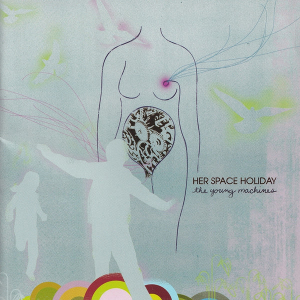
The Young Machines is a studio album by Her Space Holiday. It was released on Mush Records on September 30, 2003.

Mastered by Guy at The Exchange is the second studio album by Ben Jacobs under his stage name of Max Tundra. Released on 2 September 2002 through Domino Records in the United Kingdom and by Tigerbeat6 Records in North America, making it his first album to be distributed in North America. The album was also Max Tundra's first to be released with vocals on nearly all the tracks.

The Bachelor is the fourth studio album by English singer-songwriter Patrick Wolf. The organ parts were recorded using the organ at St. George's church in Brede, East Sussex. The album peaked at number 49 on the UK Albums Chart. The album was mixed at The Chairworks recording complex in Yorkshire.

Destroyer is a Canadian indie rock band from Vancouver, formed in 1995. The band is fronted by founding member Dan Bejar, with a collective of regular band members and collaborators joining him in the studio and during live performances. Alongside Bejar, Destroyer currently includes longtime producers John Collins (bass) and David Carswell (guitar), Nicolas Bragg, Ted Bois (keyboards), JP Carter (trumpet) and Joshua Wells (drums).

Brumalia is a 7-track EP released by English-Irish singer-songwriter Patrick Wolf, to accompany the release of Together, the fourth single from his fifth studio album, Lupercalia. The EP was released on 4 December 2011.

Cloud Nothings is an American indie rock band from Cleveland, Ohio, United States, founded by singer-songwriter Dylan Baldi. It currently consists of lead singer and guitarist Dylan Baldi, drummer Jayson Gerycz, and bassist Chris Brown.

Sundark and Riverlight is a double album released by English singer-songwriter Patrick Wolf on 15 October 2012. It was released through his own label, Bloody Chamber Music, and Essential Music.

Wolf Alice are an English rock band from London, England. Formed in 2010 as an acoustic duo comprising singer Ellie Rowsell and guitarist Joff Oddie, Wolf Alice have also featured bassist Theo Ellis and drummer Joel Amey since 2012.
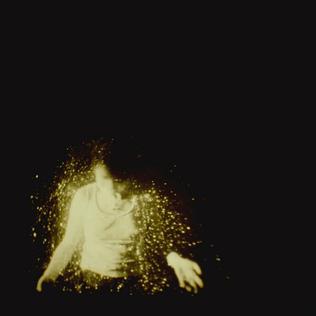
My Love Is Cool is the debut studio album by English alternative rock band Wolf Alice. It was released on 22 June 2015 in the United Kingdom by Dirty Hit and on 23 June 2015 in the United States by RCA Records. The album includes the previously released singles "Bros" and "Fluffy" in re-recorded versions, and was preceded by the songs "Giant Peach" and "You're a Germ". The song "Moaning Lisa Smile", which originally appeared on the band's 2014 EP Creature Songs, peaked at number nine on the US Billboard Alternative Songs chart, and was also included on the US edition of the album. While not a single, the song "Silk" appeared on the soundtrack of T2 Trainspotting, peaking at number 39 on the Scottish charts in 2017.




















